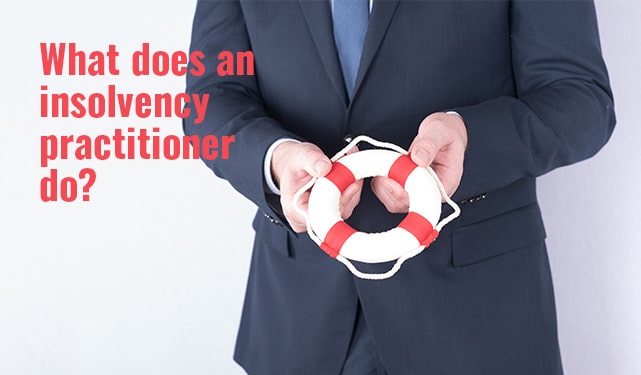Insolvency Practitioner - The Facts
Insolvency Practitioner - The Facts
Blog Article
How Insolvency Practitioner can Save You Time, Stress, and Money.
Table of ContentsInsolvency Practitioner Things To Know Before You BuyA Biased View of Insolvency PractitionerThe Best Strategy To Use For Insolvency PractitionerInsolvency Practitioner Things To Know Before You Get ThisAn Unbiased View of Insolvency Practitioner
Whether you require to use a bankruptcy professional (IP) to liquidate your business depends on numerous aspects. While engaging a bankruptcy professional for all types of liquidation is not a lawful requirement, doing so can frequently streamline the procedure and make sure compliance with lawful demands. Liquidating a company is a crucial choice that includes considerable repercussions..jpg)
It is a treatment used when a company does not have any lenders, or all of their financial institutions can be settled in full with legal rate of interest. Understanding the various sorts of insolvency procedures can help you establish the most effective training course of action for your business's liquidation or various other formal bankruptcy procedures itself.
This is necessary in order to stick to lawful needs - Insolvency Practitioner. This is due to the fact that IPs have the needed certifications and experience to make sure that the liquidation procedure is conducted based on all appropriate laws and regulations. By involving an accredited bankruptcy practitioner, you can have satisfaction knowing that your firm's liquidation process will certainly be taken care of skillfully and in compliance with the pertinent lawful needs
Examine This Report about Insolvency Practitioner
The insolvency expert is designated as a liquidator and is accountable for handling the business and liquidator's financial obligations impressive responsibilities and properties. This procedure involves liquidating the firm's possessions and dispersing the proceeds to creditors. Upon conclusion of the process, the firm is removed from the register at Business Home.
Stopping working to do so can cause individual obligation for the company or supervisor for the financial institution's financial obligations. Voluntary liquidation, which includes Lenders' Volunteer Liquidation (CVL) and Members' Voluntary Liquidation (MVL), is started by the business's directors and investors when they can no longer pay their financial obligations. In a CVL, the bankruptcy practitioner is designated as the liquidator, in charge of handling firm financial obligations and all company properties.

Insolvency Practitioner Things To Know Before You Buy
By evaluating the knowledge and experience of possible insolvency professionals, you can make certain that you select a specialist that possesses the necessary credentials to handle your business's liquidation process effectively. While bankruptcy practitioner-led liquidation is frequently one of the most suitable course of action for business encountering insolvency, there are alternative methods to take into consideration, such as striking off and partial liquidation.
It's necessary to examine all available choices prior to selecting the following ideal solution or strategy for your service. Striking off business' registers is a much more simple and cost-effective way to close inactive or small business without any debts or assets. To strike off a firm, its name is removed from the Companies Home register by sending form DS01.
Before selecting striking off, it's important to consider the benefits and downsides of this method and take into consideration whether it's the appropriate choice for your company. Partial liquidation is one more alternative to bankruptcy practitioner-led liquidation, wherein a firm liquidates specific possessions and liabilities while remaining to operate with the staying assets and liabilities.
A Bankruptcy Professional will be able to recommend you i thought about this of the most effective strategy to take and make sure that every little thing runs smoothly. It is not feasible to liquidate a business without a liquidator. Designating an authorized insolvency specialist is needed for the process of volunteer liquidation to start.
Examine This Report about Insolvency Practitioner
It is feasible to close and liquidate your business without utilizing a liquidator, offered your firm is solvent and you satisfy the qualification requirements to liquify or liquidate it. Nonetheless, if your company is financially troubled, you might be needed to use a liquidator and begin official insolvency treatments. Below are a few other informative short articles pertaining to company liquidation in the UK:.
Remaining in a setting where you're not able to pay your company's creditors is extremely stressful. In an attempt to stay clear of boosting the level of debt, lots of companies attempt to negotiate straight with their lenders and consent to a casual plan. If the financial debt is fairly tiny and owed to one lender, and the lender is being cooperative, getting in into an informal financial obligation arrangement is possibly the most effective solution, rather than browsing the web for 'a bankruptcy practitioner near me'.
On the other hand, if there are multiple creditors and the level of financial obligation is big, creditors might not be so eager or cooperative. To avoid liquidation or personal bankruptcy, it is far better to work with a bankruptcy practitioner to create formal proposals and see page bargain with financial institutions on your behalf.
Excitement About Insolvency Practitioner
Whilst it is a way to handle financial debt, there are significant threats entailed with this kind of debt arrangement - Insolvency Practitioner. If a lender wants to get in right into an informal plan (IA) where the borrower has consented to make regular, if lower, payments to pay back the financial obligation, it is necessary to stay with the contract

For that reason, the lender is within their legal rights to revoke the arrangement and petition the courts for your company to be sold off at any moment. A formal setup that has actually been recommended by a bankruptcy practitioner on your part, and agreed by a creditor, gives a much safer option.
Report this page